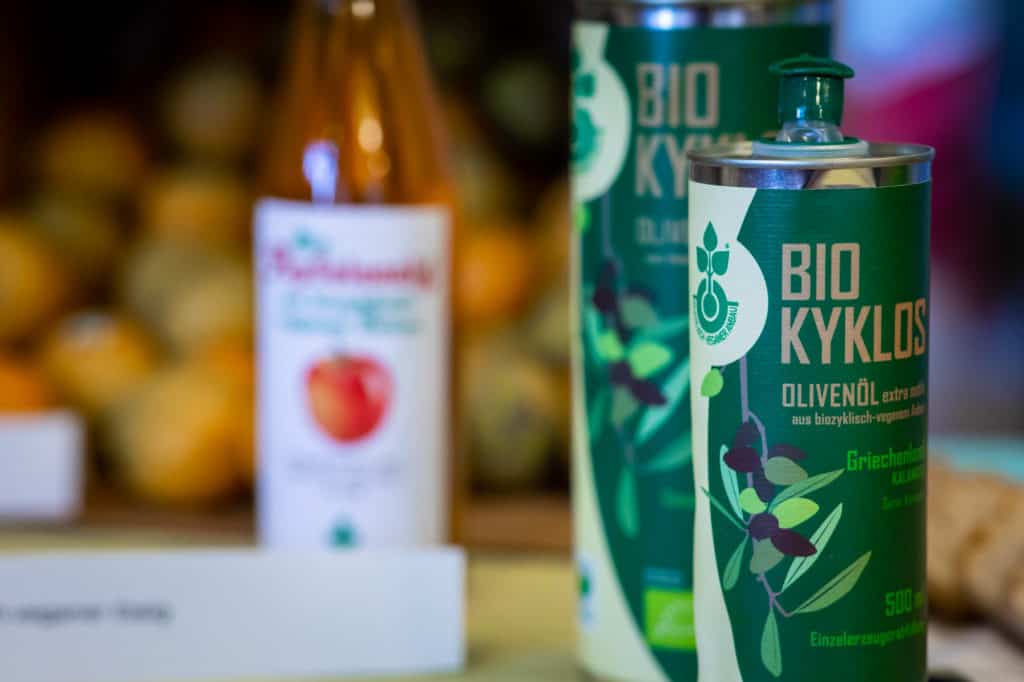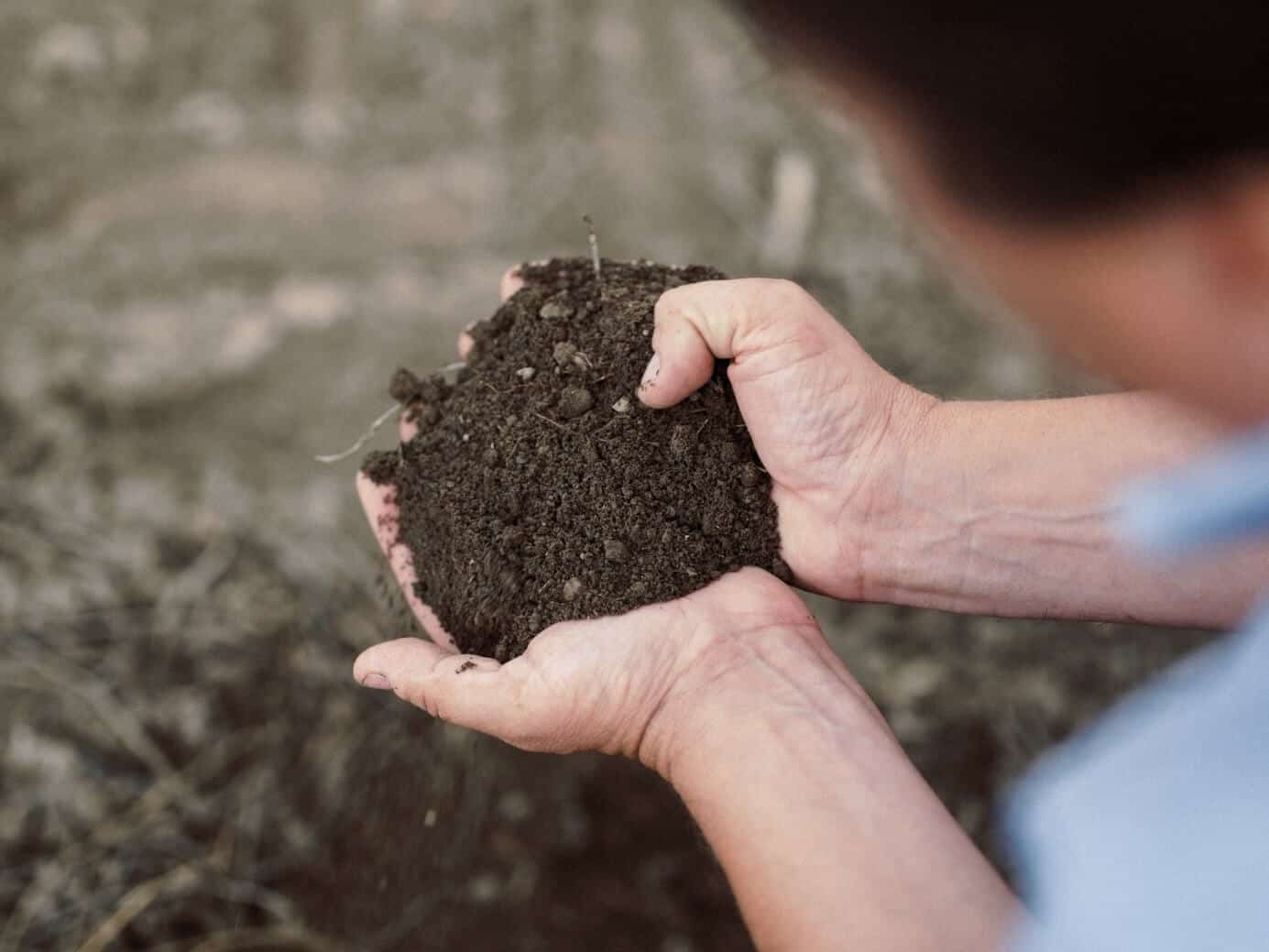Op Ed: Axel Anders, Co-Founder, Biocyclic Vegan International, Says Vegan Products Are Not Equally Sustainable – vegconomist

Axel Anders is co-founder and member of the Board of Directors at Biocyclic Vegan International, which works to promote cycle-based organic farming without the use of commercial livestock, animal slaughter, fertilisers, or animal inputs.
The association raises awareness of the advantages of organic vegan farming and helps farms to convert. It also aids research projects on the increase of soil fertility through the use of biocyclic vegan methods.
Biocyclic vegan − an opportunity for the organic food sector
By Axel Anders
The market for vegan products is booming. Young people, in particular, are increasingly opting for a responsible, plant-based lifestyle for reasons of sustainability and animal ethics. An absolutely positive development! However, it is worth taking a closer look to realise that vegan products are not equally sustainable. The focus is often on avoiding animal ingredients, while other ecological aspects play a secondary role.
It is undoubtedly true that a more plant-based diet can contribute to a reduction in livestock farming, which in turn has a positive impact on the environment, climate and nature. By reducing the amount of land required for animal feed, more arable land can be made available to produce food for human consumption, and land previously used for agriculture can even be rewilded to mitigate the climate and biodiversity crises. Scientists and organisations advocating for a transformation of the food system rightly emphasise this.

However, there are important issues that are eclipsed concerning conventional agriculture, from which the raw materials used to make most vegan products come today. The use of artificial fertilisers and pesticides as well as intensive cultivation methods in monocultures have a detrimental impact on soil life, biodiversity and the health of our habitats. This problem is often neglected when communicating the benefits of a vegan diet. However, when it comes to ecological sustainability in a comprehensive sense, it is necessary to think beyond simply avoiding animal products.
For decades, organic farming has been successfully setting standards for a more climate- and environmentally- friendly and resource-efficient way of farming which manages the soil with care and promotes biodiversity. Therefore, it would be logical for vegan products to increasingly be offered in organic quality to meet sustainability requirements.
Even though the vegan assortment is also experiencing significant growth in the organic sector, the topic of veganism, in general, still seems to have little priority for the organic industry as a whole. This recently became apparent at the annual conference of the organic food sector in Germany, the Organic Marketing Days, which took place in early November 2023 at the Academy for Organic Agriculture and Food at Kirchberg Castle (Akademie für ökologische Land- und Ernährungswirtschaft Schloss Kirchberg), where the provocative question “Vegan – is the organic sector missing out on a trend?” was posed. The question was clearly answered in the affirmative, despite an awareness of the urgency and relevance of the issue.

What is the problem here?
In contrast to conventional agriculture, which would be easy to “veganise” (synthetic fertilisers and pesticides can be produced entirely without animal source materials), livestock farming plays a central role in traditional organic farming. Fertilisers made from animal excrement and slaughterhouse by-products are considered essential for a sustainable circular farm economy, and the prevailing view is that it is impossible to build up permanent soil fertility without animal manure.
Additionally, in light of a growing public sensitivity towards the methods of conventional industrial animal farming, the organic industry increasingly sees the production of meat, milk, and eggs as its “business model.” Efforts towards “animal welfare” and more humane or “species-appropriate” animal husbandry with free-range or pasture systems, breeding of old breeds, raising “brother chickens” in egg production, mother-bonded calf rearing, etc.―measures that indeed represent significant progress compared to conventional practices and are to commendable―give consumers the feeling that choosing organic products is the best ethical and ecologically sustainable option. In line with the “Planetary Health Diet”, a consensus is forming here that reduced consumption of animal products, preferably from sustainable and animal-friendly production, is the desired solution: “Less meat, but good organic meat!”

When vegan circles go a step further and fundamentally question the consumption of animal products, this must be perceived as a disturbance, if not an affront, by representatives of the organic sector who have been fully committed to animal welfare and environmentally friendly production for decades.
The group of young trendsetters of Generation Z, on the other hand, who are increasingly guided by ethical motives, no longer feel at ease with the animal welfare narrative. There is currently a paradigm shift underway in the human-animal relationship, in the sense that the use and killing of animals for human consumption is no longer considered ethically justifiable and, given the availability of plant-based alternatives, is no longer considered to be necessary. The question is being asked more and more consciously: ” Isn’t the agricultural production of the food I consume―even if its ingredients are labelled as “organic” AND “vegan”―nonetheless associated with animal suffering?”
How can this latent conflict between ecological and vegan perspectives be overcome?
In the midst of these challenges, a pioneering solution has emerged from the heart of the organic movement: biocyclic vegan agriculture, a form of organic farming that is vegan at the same time, which means it does not involve any animal husbandry or the use of fertilisers and other inputs of animal origin.

This cultivation principle can be traced back to a number of visionaries in various European countries, particularly to Adolf Hoops, a pioneer of organic agriculture in Germany and co-founder of the farmers’ association Bioland, for whom this question arose as early as the 1950s. He considered it an absolute necessity for the entire agricultural sector to become organic to protect natural resources and livelihoods. At the same time, however, he was already aware that people would increasingly turn to plant-based diets in the future. In view of the fact that organic farming traditionally postulates livestock farming as indispensable for maintaining permanent soil fertility, he faced the dilemma that with an increasingly plant-based diet, livestock would only have to be kept as “fertiliser producers”, which would ultimately lead to “huge meat mountains of and milk lakes” that would no longer be consumed.
With this question in mind, Adolf Hoops began to try out new fertilisation methods on his organic market garden Biomodell Walsrode in Northern Germany, in order to build up long-lasting soil fertility in a purely plant-based way. These very successful efforts were further developed and refined over the decades―partly also in Greece for the Mediterranean region―until they resulted in the “Biocyclic Standard” from the turn of the millennium and finally from 2016 in the “Biocyclic Vegan Standard“. In 2017, the latter was recognised by IFOAM Organics International as an independent global organic standard and incorporated into the IFOAM Family of Standards.
Therefore, today, with the emergence of biocyclic vegan agriculture, there exists an approach that conceives the vegan idea from within the organic agriculture movement. It allows products grown according to both organic and vegan principles to be identified by consumers as “vegan from the field” by means of a corresponding label based on a professional certification system along the entire value chain. The Biocyclic Vegan Quality Seal guarantees that the products labelled with it are not only free from animal ingredients, but are also organic and “consistently vegan” in terms of the way they were grown.

Setting standards for the entire industry
An increasing number of biocyclic vegan operations worldwide prove that organic farming can be purely plant-based “without the detour through livestock”. This presents a real alternative, especially for stockfree organic farms that are already operating without livestock and also for farmers who are considering exiting animal farming for economic or ethical reasons. With their experience and best practices, they will become beacons for a sustainable transformation of the agri-food system towards an ecological and simultaneously more plant-based approach.
The organic sector still views the vegan trend with some scepticism. However, through biocyclic vegan agriculture, it has the opportunity not only to embrace this trend, but also to set new standards for the entire industry and, in addition to its traditional approach, to develop a new range of products from consistently organic and vegan production – thereby tapping new growth potentials.
And even conventional producers and processing companies should ask themselves whether their vegan products will still be able to meet the demands for increased ecological sustainability and the careful use of global resources in the future, as long as their production continues to be associated with the destructive and life-threatening practices prevalent in the general food sector. For them too, biocyclic vegan agriculture offers new perspectives.

Moreover, biocyclic vegan agriculture will play an increasingly important role in the future of organic farming in general. With the necessary and politically intended reduction of animal husbandry and the associated growing extensification of livestock farming, farms will have less and less farmyard manure available. So where will the fertiliser come from? Purchasing fertiliser with substances from conventional agriculture, including from third countries (as is already practised today) is not a solution. Organic farming will inevitably have to deal with the question of how to manage with plant-based fertilisation and how to close the farm cycles purely with plant-based inputs.
More relevant than ever
The question that Adolf Hoops asked himself 70 years ago is more relevant than ever! And biocyclic vegan agriculture has developed practice-proven answers.
This is the chance for the entire organic sector: to consistently take the organic concept one step further by integrating vegan aspects into the principles of organic farming and to equip itself now for the growing and increasingly complex challenges of the future. This also means developing a market for biocyclic vegan products labelled with the quality seal, including them in the respective assortments, and enhancing their visibility through appropriate communication and promotional measures.
At Biofach 2024, in Nuremberg, Germany, there will be an opportunity to gain more insight into biocyclic vegan agriculture. Biocyclic Vegan International, in cooperation with the German association Förderkreis Biozyklisch-Veganer Anbau e. V., will be there with its stand (Hall 9-116) and will also take part in various events in the event space “Experience the World of Vegan” (Hall 4-100).
You can find further information at https://www.biocyclic-vegan.org/




